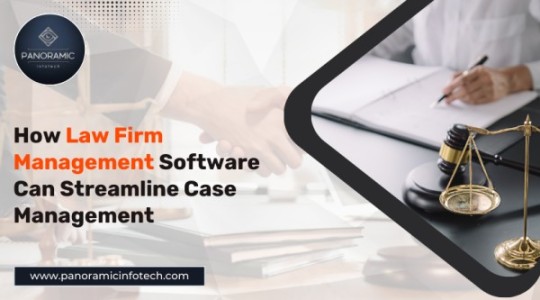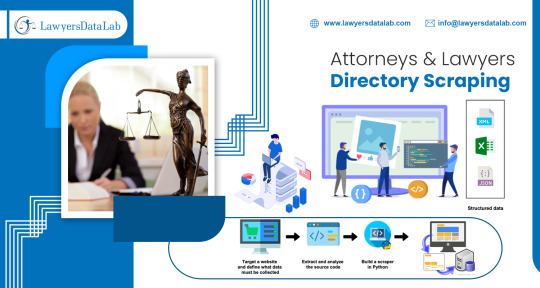#best case management software for law firms
Explore tagged Tumblr posts
Text
Law Firm Management Software | Panoramic Infotech

Streamline your legal practice with Panoramic Infotech's comprehensive law firm management software. From case management to billing, we've got you covered.
For more information:- https://www.panoramicinfotech.com/the-law-firm-management-system/
#law firm management software#best law firm management software#best case management software#best case management software for law firms
0 notes
Text
Professional Law Firm Bookkeeping Services

Keeping track of your law firm's finances can be complex, especially when it comes to trust accounting, billing compliance, and financial reporting. At Practice42, we provide specialized bookkeeping for law firms. Our expert bookkeepers ensure your accounts are accurate, organized, and fully compliant with legal industry regulations. From managing client funds and trust accounts to tracking expenses and revenue, we help you maintain financial stability and transparency. Don't let bookkeeping challenges slow you down—partner with our experienced team to keep your finances in perfect order. Contact us today!
#law case management software#law firm#law practice management support#legal case management solutions#best legal practice management software#law firm software#attorney coaching#law firm marketing#law practice data solution#law practice software
0 notes
Text
Top Features to Look for in Small Law Firm Case Management Software

In the competitive legal landscape, small law firms must leverage technology to optimize their operations and provide exceptional client service. Case management software is a vital tool that can enhance efficiency, streamline workflows, and improve communication. However, with numerous options available, selecting the right software can be overwhelming. To help small law firms make an informed decision, here are the top features to look for in case management software.
1. User-Friendly Interface
For small law firms, where resources may be limited, ease of use is paramount. A user-friendly interface minimizes the learning curve and allows team members to quickly adapt to the software. Look for case management solutions that provide:
Intuitive Navigation: A clean, organized layout that simplifies access to features and documents.
Customizable Dashboards: The ability to tailor the dashboard to display relevant information and shortcuts to frequently used tools.
2. Document Management Capabilities
Efficient document management is essential for small law firms, as they often handle a significant volume of case files, contracts, and correspondence. Key features to look for include:
Centralized Document Storage: A secure repository for storing and organizing all case-related documents, ensuring easy access for team members.
Automated Document Assembly: Tools that allow users to create templates and automate the generation of standard legal documents, saving time and reducing errors.
3. Time Tracking and Billing Integration
For small firms, accurate billing is crucial for maintaining cash flow and profitability. Look for software that integrates time tracking and billing features, such as:
Built-In Time Tracking: A system that enables attorneys to log billable hours directly within the case management platform.
Customizable Invoicing: Options to generate professional invoices that can be tailored to reflect the firm’s branding and billing practices.
4. Task and Workflow Management
Managing multiple cases and tasks can be challenging, especially for small law firms with limited staff. Case management software should offer robust task and workflow management features, including:
Task Assignment and Tracking: The ability to create, assign, and track tasks to ensure accountability and prevent deadlines from being missed.
Automated Reminders: Notifications for important deadlines, court dates, and upcoming tasks to keep everyone on track.
5. Client Communication Tools
Effective communication with clients is essential for building trust and ensuring client satisfaction. Look for software that facilitates seamless communication, such as:
Client Portals: A secure online portal where clients can access case updates, documents, and communicate directly with their attorneys.
Secure Messaging: Built-in messaging systems that allow for secure communication between attorneys and clients, reducing the risk of sensitive information being compromised.
6. Reporting and Analytics
Understanding the performance of your law firm is vital for continuous improvement. Choose case management software that offers reporting and analytics features, such as:
Performance Metrics: Tools to track key performance indicators (KPIs) like case outcomes, billing efficiency, and client satisfaction.
Customizable Reports: The ability to generate reports tailored to your firm’s specific needs, providing insights into areas that require attention or improvement.
7. Integration with Existing Tools
Small law firms often use various tools and software for different functions, such as email, calendars, and accounting software. Choose case management software that integrates seamlessly with these existing systems to enhance efficiency. Look for:
API Integrations: Compatibility with popular tools like Microsoft Office, Google Workspace, and accounting software to create a cohesive tech ecosystem.
Data Import/Export Options: Easy methods for transferring data between systems to minimize disruptions during the transition to new software.Get redirected here best law firm case management software
8. Security Features
Given the sensitive nature of legal work, security is a top priority. Ensure that the case management software you choose offers robust security features, including:
Data Encryption: Protection for sensitive client data through encryption protocols.
User Permissions: The ability to set access controls and user permissions to safeguard confidential information.
9. Mobile Accessibility
In today’s fast-paced environment, attorneys often work outside the office. Look for case management software that offers mobile accessibility, allowing team members to access case files and communicate with clients from anywhere, on any device.
10. Scalability
As your small law firm grows, your case management needs may change. Choose software that can scale with your firm, offering additional features or user licenses as necessary. This ensures that you won’t need to switch platforms as your practice expands.
Conclusion
Selecting the right case management software is a critical decision for small law firms aiming to boost efficiency and improve client service. By focusing on these top features, firms can identify software that aligns with their needs and enhances their operations. Investing in the right technology not only streamlines workflows but also positions small law firms for growth and success in an increasingly competitive legal market.
0 notes
Text
Streamlining Your Law Firm with the Best Legal Document Management System in India
Now a-days, proficient cases taking care of and recording the executives are fundamental for law offices to flourish. The capacity to arrange, access, and oversee archives rapidly is essential for remaining in front of cutoff times, answering clients, and keeping cases pushing ahead. This is where Legal Document Management Systems become possibly the most important factor. Assuming that you're searching for the best legal document management system provider in India, understanding the advantages of these frameworks and how they work can have a significant effect.

What is a Legal Document Management System?
An Legal Document Management System is a product arrangement intended to store, make due, and track authoritative reports electronically. It permits law offices to make a focal storehouse of case-related reports that can be gotten to safely from any area. This kind of framework assists lawful experts with overseeing client records, court reports, agreements, pleadings, and other significant desk work in a smoothed out, productive way.
With the right legal document management system, law offices can:
Further develop cooperation among colleagues
Keep up with adaptation control of archives
Track changes and updates
Safely share records with clients and partners
Guarantee information security and consistence with legitimate guidelines
The Job of Legal Case Management Software
Aside from overseeing archives, law offices need to supervise the whole lifecycle of their legitimate cases. This is where legal case management software becomes fundamental. While legal document management systems center around putting away and sorting out documents, legal case management software is intended to oversee cases, clients, and court plans really.
This product permits law offices to:
Track case cutoff times
Oversee client connections
Allocate errands to colleagues
Track billable hours
Guarantee consistence with lawful work processes
For the overwhelming majority lawful firms in India, coordinating both an Legal Document Management System and Legal Case Management Software guarantees consistent tasks. The two frameworks complete one another and give an all encompassing answer for the mind boggling necessities of a law office.
Why Choose the Best Legal Document Management System Provider in India?
Picking the right authoritative record the board situation supplier in India is a basic choice that can straightforwardly influence the effectiveness and progress of your legitimate practice. The best suppliers offer adaptable arrangements that meet the particular requirements of your firm while guaranteeing that your delicate lawful information stays secure.
Key highlights to search for in an authoritative report the board framework supplier in India include:
High level hunt usefulness to rapidly track down records
Reconciliation with existing lawful programming
Powerful security elements to safeguard delicate client data
Cloud-based openness for remote working
Customary programming updates and client care
Benefits of Implementing Legal Technology
By utilizing both authoritative report the board frameworks and legitimate case the executives programming, law offices in India can remain in front of the opposition. These arrangements give huge advantages, including:
Improved efficiency through coordinated work processes
Decreased hazard of missing significant cutoff times or losing fundamental archives
Smoothed out correspondence between colleagues and clients
Further developed precision and proficiency in archive readiness
Secure capacity and simple recovery of legitimate documents
Conclusion
Putting resources into the best authoritative report the board framework and legitimate case the executives programming can change the manner in which your law office works. By joining forces with the best authoritative report the board framework supplier in India, you guarantee that your firm has the apparatuses expected to oversee cases, store delicate data safely, and upgrade generally speaking efficiency. With lawful innovation developing quickly, embracing these arrangements will give your firm the upper hand it requirements to prevail in a cutting edge legitimate scene.
On the off chance that your firm is hoping to smooth out tasks and further develop case the board, right now is an ideal opportunity to investigate the advantages of a solid Legal Document Management System.
#best legal document management system provider in india#legal document management system#law firm case management software#legal case management software#matter management software
0 notes
Text
law firm case management software | THEO Law Farm
Theo is a law firm case management software and best law practice management software. It is suitable for all types of small and large law firm and offices. THEO increases overall efficiencies as the software has the capabilities to retrieve, archive and store client case history data, Case management, case dates, time spent on case or client, associates time history, billing and much more.
#law firm case management software#law firm management#law case management#best law practice management software
0 notes
Text
Everything You Need to Know About Cosmolex Accounting Software

In today’s fast-paced business world, having the right accounting software is essential for smooth financial management. CosmoLex has emerged as a leading choice for businesses, particularly in the legal and professional services industries, offering comprehensive accounting solutions tailored to specific needs.
This guide will explore why CosmoLex stands out as the best accounting software, detailing its features, benefits, and unique selling points. We will also address common questions to help you understand if CosmoLex is the right tool for your business.
What is CosmoLex?
CosmoLex is a cloud-based accounting software solution designed with professionals in mind, especially those in the legal industry, such as law firms and solo practitioners. With an all-in-one platform, CosmoLex combines essential accounting functions with specialized features that cater to the unique needs of legal professionals. Unlike traditional accounting software, CosmoLex streamlines financial management while also addressing compliance and trust accounting requirements.
With features that extend beyond basic bookkeeping, CosmoLex helps firms manage time tracking, billing, client management, and compliance, all in one integrated system. The software's easy-to-use interface and powerful functionality have made it a go-to solution for professionals looking for efficiency and accuracy in their financial operations.
Key Features of CosmoLex
1. Trust Accounting Compliance
One of CosmoLex’s standout features is its trust accounting capabilities, specifically designed to meet the strict regulations of the legal industry. Trust accounts require meticulous record-keeping to ensure that client funds are handled appropriately. CosmoLex automates the process of tracking client trust balances, generating trust account reconciliations, and ensuring compliance with local bar association rules.
2. Integrated Time Tracking and Billing
CosmoLex combines time tracking and billing into one seamless process, making it easy for law firms to log billable hours and create invoices directly from the platform. This feature helps streamline the billing process, improves accuracy, and ensures that no billable time goes unaccounted for. Whether you need to track time spent on client meetings or specific case tasks, CosmoLex offers a user-friendly interface that simplifies time tracking and invoicing.
3. Comprehensive Financial Management
Beyond its specialized tools, CosmoLex provides full-service accounting capabilities, including accounts payable/receivable management, general ledger, and financial reporting. It allows businesses to manage their financial data accurately, create financial statements, and generate customizable reports that provide insights into their financial health.
4. Automated Bank Reconciliation
CosmoLex automates the process of bank reconciliation, which is crucial for maintaining accurate financial records. By connecting your bank accounting software, transactions are automatically imported, matched, and reconciled. This reduces the manual effort needed for reconciliation and minimizes the risk of human error.
5. Client and Matter Management
CosmoLex offers integrated client and matter management tools that allow you to organize client files, manage documents, and maintain case notes within the same system. This helps legal professionals keep track of all case-related information in one place, ensuring that critical documents are easily accessible when needed.
6. Billing Customization and Payment Processing
The software supports customizable invoice templates and allows you to set payment terms and accept online payments through integrated payment gateways. This feature not only streamlines the billing process but also provides clients with convenient payment options, thereby improving cash flow for the business.
7. Compliance and Security
CosmoLex prioritizes data security with encryption, secure cloud storage, and multi-factor authentication. Compliance is also a key focus, especially for law firms that must adhere to various legal and financial regulations. The platform ensures that all data is protected and compliant with the necessary guidelines for trust accounting.
Benefits of Using CosmoLex
1. All-in-One Solution
One of the major advantages of CosmoLex is that it combines various essential tools into a single platform. This eliminates the need for separate software solutions for accounting, time tracking, billing, and client management, streamlining workflow and reducing administrative overhead.
2. Enhanced Efficiency
CosmoLex’s user-friendly design and automated features help businesses save time on routine tasks. The time tracking, billing, and reconciliation automation allow professionals to focus on their core activities rather than spend valuable time on manual bookkeeping.
3. Accurate and Transparent Reporting
With real-time financial reporting capabilities, CosmoLex helps businesses keep a clear picture of their financial status. Customized financial reports can be generated for better insights, aiding in more informed decision-making and strategic planning.
4. Improved Cash Flow
By enabling easy online payment processing and accurate invoicing, CosmoLex helps businesses improve their cash flow. Clients can pay invoices directly through integrated payment gateways, which helps speed up the collection process.
5. Legal-Specific Features
CosmoLex is specifically designed for legal professionals, so it includes features that cater to the needs of law firms that other generic accounting software might not offer. This includes trust accounting compliance, case management, and billing features tailored for legal services.
How Does CosmoLex Compare to Other Accounting Software?
1. CosmoLex vs. QuickBooks
QuickBooks is one of the most widely used accounting platforms for small to medium-sized businesses. While it offers strong accounting capabilities, it does not provide specialized features tailored for legal professionals, such as trust accounting compliance and integrated client matter management. CosmoLex excels in this area by combining industry-specific tools with general accounting features.
2. CosmoLex vs. Clio
Clio is a popular practice management software for law firms that includes billing, case management, and document storage. However, while Clio does provide some financial features, it lacks full-service accounting capabilities such as automated bank reconciliation and comprehensive financial reporting that CosmoLex offers. CosmoLex integrates these features into one platform, making it an all-in-one solution.
3. CosmoLex vs. Xero
Xero is a well-known accounting software designed for a broad range of businesses. While it offers great financial management tools, it lacks the legal-specific features that CosmoLex has, such as trust accounting compliance and client matter management. For law firms needing specialized accounting and practice management, CosmoLex is the more comprehensive option.
Pros and Cons of Using CosmoLex
Pros:
All-in-One Platform: Combines accounting, time tracking, and client management.
Trust Accounting Compliance: Ideal for law firms that need to manage client trust accounts.
User-Friendly Interface: Easy to navigate, even for those without an accounting background.
Seamless Integration: Works well with payment gateways and other third-party tools.
Automated Features: Time-saving automation for bank reconciliation, billing, and reporting.
Cons:
Cost: CosmoLex can be more expensive compared to simpler, non-specialized accounting software.
Learning Curve: While the interface is user-friendly, new users may still need time to familiarize themselves with all the features.
Not Ideal for Non-Legal Firms: The software is best suited for law firms and may not provide enough value for businesses in other industries.
Final Thoughts
CosmoLex has established itself as one of the best accounting software solutions for legal professionals due to its comprehensive, all-in-one approach. From trust accounting compliance to integrated time tracking and billing, CosmoLex provides the tools needed to manage the financial and operational aspects of a law firm effectively. While it may come at a higher cost compared to simpler accounting software, its specialized features and time-saving automation make it a worthwhile investment for law firms and professional service providers. By choosing CosmoLex, businesses can enhance efficiency, ensure compliance, and focus on delivering excellent services to their clients.
FAQs
What Industries Benefit the most from CosmoLex?
CosmoLex is designed primarily for legal professionals and firms. It is best suited for law firms, solo practitioners, and accounting firms that handle legal trust accounting and billing.
How does CosmoLex Handle Data Security?
CosmoLex employs strong data security measures such as encryption, cloud storage, and multi-factor authentication to protect user data and ensure compliance with industry regulations.
Can I try CosmoLex before Purchasing?
Yes, CosmoLex offers a free trial for potential customers to test out the platform and determine if it fits their business needs.
Does CosmoLex Integrate with other Software?
CosmoLex integrates with popular tools and platforms like Xero, QuickBooks, and payment gateways, ensuring a seamless workflow for users who may need to use additional software for their operations.
Is CosmoLex Suitable for Solo Practitioners?
Yes, #CosmoLex is an excellent choice for solo practitioners who need a comprehensive accounting and practice management solution. Its user-friendly design and specialized features make it ideal for professionals who manage their own practices.
2 notes
·
View notes
Text
By
Hannah Garden-Monheit and Ken Merber
March 1, 2024
Landlords and property managers can’t collude on rental pricing. Using new technology to do it doesn’t change that antitrust fundamental. Regardless of the industry you’re in, if your business uses an algorithm to determine prices, a brief filed by the FTC and the Department of Justice offers a helpful guideline for antitrust compliance: your algorithm can’t do anything that would be illegal if done by a real person.
Today, the FTC and Department of Justice took action to fight algorithmic collusion in the residential housing market. The agencies filed a joint legal brief explaining that price fixing through an algorithm is still price fixing. The brief highlights key aspects of competition law important for businesses in every industry: (1) you can’t use an algorithm to evade the law banning price-fixing agreements, and (2) an agreement to use shared pricing recommendations, lists, calculations, or algorithms can still be unlawful even where co-conspirators retain some pricing discretion or cheat on the agreement.
The agencies’ work in this space is especially important given rising residential housing rental prices. Rent is up nearly 20% since 2020, with the largest increases concentrated on lower- and middle-tier apartments rented by lower-income consumers. About half of renters now pay more than 30% of their income in rent and utilities, and rising shelter costs were responsible for over two-thirds of January inflation.
Meanwhile, landlords increasingly use algorithms to determine their prices, with landlords reportedly using software like “RENTMaximizer” and similar products to determine rents for tens of millions of apartments across the country. Efforts to fight collusion are even more critical given private equity-backed consolidation among landlords and property management companies. The considerable leverage these firms already have over their renters is only exacerbated by potential algorithmic price collusion. Algorithms that recommend prices to numerous competing landlords threaten to remove renters’ ability to vote with their feet and comparison-shop for the best apartment deal around.
What’s the message for other businesses?
Agreeing to use an algorithm is an agreement. In algorithmic collusion, a pricing algorithm combines competitor data and spits out the suggested “maximized” rent for a unit given local conditions. Such software can allow landlords to collude on pricing by using an algorithm—something the law doesn’t allow IRL. When you replace once-independent pricing decisions with a shared algorithm, expect trouble. Competitors using a shared human agent to fix prices? Illegal. Doing the same thing but with an agreed upon, shared algorithm? Still illegal. It’s also irrelevant that the algorithm maker isn’t a direct competitor if you and your competitors each agree to use their product knowing the others are doing the same in concert.
Price deviations don’t immunize conspirators. Some things in life might require perfection, but price-fixing arrangements aren’t one of them. Just because a software recommends rather than determines a price doesn’t mean it’s legal. Setting initial starting prices or recommending initial starting prices can be illegal, even if conspirators deviate from recommended prices. And even if some of the conspirators cheat by starting with lower prices than those the algorithm recommended, that doesn’t necessarily change things. Being bad at breaking the law isn’t a defense.
The housing industry isn’t alone in using potentially illegal collusive algorithms. The Department of Justice has previously secured a guilty plea related to the use of pricing algorithms to fix prices in online resales, and has an ongoing case against sharing of price-related and other sensitive information among meat processing competitors. Other private cases have been recently brought against hotels and casinos.
Technology is a promise. Used correctly, it can make our lives healthier, safer, and more efficient. But its efficiency can also be used by bad actors to crush competition or bilk consumers in novel ways. No matter the tool law violators use, the FTC and the Department of Justice stand vigilant on the side of consumers and competition.
Hannah Garden-Monheit is Director of the FTC’s Office of Policy Planning and Ken Merber is Deputy Assistant Director of the FTC’s Anticompetitive Practices II Division.
#fucking finally#can't wait for landlords to be forced to stop this shit#federal trade commission#price fixing
2 notes
·
View notes
Text
Best Personal Injury Case Management for Lawyers: Top Software Solutions
Discover seamless personal injury case management with cutting-edge software solutions. Streamline your workflow, enhance client communication, and maximize efficiency. Elevate your practice with these essential tools for legal professionals.
#personal injury software case management#personal injury software#case management software#case management software for personal injury lawyers#case management software for personal injury law#case management software for personal injury law firm#personal injury lawyers software#personal injury law software
3 notes
·
View notes
Text
Find Your Perfect Alternative to Smokeball Legal Practice Management Software

In the bustling world of law, legal professionals are always on a quest to find the perfect legal practice management software. The law practice management software boosts productivity and helps lawyers offer exceptional client service. There are various legal practice management software in the industry. All these software offers different features, pricing, and integration capabilities. Among various billing software for lawyers, CaseFox and Smokeball are emerging as two prominent software in the industry. But because of various advanced features and functionalities, CaseFox is becoming a Smokeball alternative. In this blog, you will learn more about CaseFox and Smokeball and compare all the features of both the softwares.
Smokeball Overview
Smokeball is a legal practice management software that supports smart case management and legal billing. Smoke is a legal practice management software that is suitable for firms. Smokeball doesn't focus too much on solo practitioners. Smokeball offers in-built e-signature but users may have to switch to advance plans for that. The software helps in managing leads, cases, and time effectively. Smokeball offers a variety of features, but users may have to pay for leveraging these features. CaseFox Overview CaseFox is a cloud-based legal practice management software that offers various comprehensive features. This software is suitable for solo practitioners and firms. It can make the whole process of legal management efficient. From the first step of client intake to offering customer service, CaseFox can do it all. Lawyers and firms can manage their time, finance, documents, and cases with the advanced feature of CaseFox. The software allows users to track time, expenses and generate bills efficiently. With the pricing and features that CaseFox provides, it becomes a Smokeball alternative for various individuals. The best part about CaseFox is that it is a free legal billing software for solo practitioners. CaseFox doesn't charge any amount from solo practitioners in their free plan. This law practice management software offers all the features in the free plan too.
CaseFox vs Smokeball
Pricing
The pricing of law firm case management software varies according to the features and functionality. Some case management systems provide subscription-based models while others opt for one-time payment or usage-based pricing options. When evaluating the legal billing software for your firm, it is crucial to consider the pricing of the software. The pricing of the firm does not just impact the budget of the firm. But it also determines the value your firm will receive from the software. Below, we will compare the pricing of CaseFox and Smokeball. a. CaseFox Pricing CaseFox is a legal software that offers three different price plans. It has flat pricing, which means lawyers won’t have to pay an extra amount for any additional feature. For solo practitioners that don’t have many caseloads, CaseFox is a free law practice management software. It doesn't charge anything. Next, CaseFox has a pro plan that costs around $39 per user/month USD. This plan includes all the features that CaseFox has to offer. From time tracking, billing, task management, invoice generation, legal billing, and LEDES billing. CaseFox offers everything in this plan that a firm or legal professional may need. b. Smokeball Pricing Smokeball has three different pricing editions. The first one is Smokeball start, and this plan costs around $29.00 per User/Per Month. This is the most basic plan that Smokeball offers and this plan doesn't have various essential and advanced features. The next plan is Smokeball grow, and it is starting at $99.00 per User/Per Month. The last plan that it has is Smokeball Prosper starting at $149.00 per month/per user.
Multilingual Support

Multilingual is a feature that enables law lawyers and firms to connect with clients from different backgrounds. The multilingual support that law firm billing software offers allows law firms to create invoices, communicate with clients and offer service in multiple different languages. This software helps in fostering better client relationships. a. CaseFox Multilingual feature CaseFox offers multilingual support that enables lawyers and firms to generate bills and invoices in multiple languages. This feature is very effective and useful for lawyers as it enables them to reach wider audiences speaking different languages. The multilingual feature that CaseFox offers removes language barriers. This is a must-have feature and it can be beneficial for various legal professionals and law firms. b. Smokeball Multilingual Feature Smokeball is a legal billing software that offers various advanced features but unfortunately, it lacks multilingual capabilities. Smokeball supports only one language to generate bills, invoices and for client communication, too.
Customer Support

The customer support feature of legal practice management holds great importance in offering client satisfaction. Robust customer support will enable firms to offer top-notch service to their clients. Lawyers and firms can solve the issues that their clients face within a few minutes with powerful customer service. Below, we will compare the customer support that CaseFox and Smokeball offer. a. CaseFox Customer Support Customer support will play an essential role in enhancing user experience. CaseFox offers top-notch customer support to users. CaseFox is one of those case management softwares that offers robust 24*7 customer support. This means if any time clients face any glitches, technical issues or they have any sort of queries. They can take help from customer support which is available 24*7. b. Smokeball Customer Support Smokeball is a legal practice management software that offers customer support only in business hours. This means clients can report their issues and queries only during these hours. This can be the major drawback for the software, as it can hamper the daily practice of lawyers or firms. If they face any technical issues.
CaseFox VS Smokeball
Feature CaseFox Smokeball Free Account CaseFox offers a free account for a solo practitioner. Smokeball offers a free trial but it doesn't have a free account. User Interface CaseFox has a straightforward and intuitive interface. Smokeball offers user-friendly with modern designCustom Forms and Template CreationCaseFox offers custom form and templates for billing and invoicing. Smokeball doesn't have any customization for forms and templates. Customer Support 24*7 customer support by CaseFox. Smokeball offers customer service only during business hours. LEDES e-Billing CaseFox makes LEDES e-billing easy. Smokeball doesn’t have an LEDES e-billing feature.
The Bottom Line
When it comes to choosing the perfect law practice management software, it is essential to consider various factors. Such as interface, integration, billing, invoicing, task management, case management and pricing, etc. CaseFox and Smokeball both are reputable legal billing software. With the features and pricing that CaseFox offers, it becomes the perfect Smokeball alternative. CaseFox is a powerful Smokeball competitor, as it is affordable and offers more features. Assess the requirements of your firm and choose the legal billing software that suits your needs. Read the full article
#Smokeball#Legal#LegalPracticeManagementSoftware#LawPracticeManagementSoftware#AlternativetoSmokeball#SmokeballAlternative#SmokeballCompetitor#LawPracticeManagement#LegalPracticeManagement#LawManagementSoftware#LegalManagementSoftware#CaseFox#LawFirmSolution#legalsoftware#LegalTech
2 notes
·
View notes
Text
Georgian American University Georgia
One of Georgia's top private colleges, Georgian American University Georgia (GAU) provides top-notch instruction with a focus on global issues. GAU, which is situated in Georgia's capital city of Tbilisi, offers a vibrant and cutting-edge learning environment that combines American and Georgian educational standards to promote academic performance.
The Georgia Ministry of Education, Science, Culture, and Sport has granted Georgian American University its accreditation. Additionally, a number of international organizations recognize it, guaranteeing that its degrees are widely acknowledged worldwide. Students can transfer credits and continue their education abroad more easily because the university uses the European Credit Transfer and Accumulation System (ECTS).
Programs and Academic Staff
Numerous undergraduate, graduate, and doctorate programs in a variety of fields are available at GAU. Each of the university's several faculties specializes on a distinct academic field:
Business School
Business administration degrees, both bachelor's and master's
Finance, marketing, management, and entrepreneurship specialties
Pay attention to internships, case studies, and international business tactics.
Law School
Law programs at the bachelor's, master's, and doctoral levels
Prioritizing corporate law, human rights, and international law
Possibilities for internships with government agencies and law firms
Humanities and Social Sciences School
Courses in Political Science, Journalism, and International Relations
multidisciplinary strategy that prioritizes research and critical thinking
Exchange initiatives with foreign academic institutions
Medical School
provides a globally renowned MD program.
Follows European medical education standards
Includes hands-on clinical training in affiliated hospitals
Campus and Infrastructure
With its cutting-edge facilities and contemporary campus, GAU offers the perfect setting for research and education. The main amenities consist of:
Advanced Library: A library that is well-stocked with study materials and digital resources
Modern labs for students studying medicine, engineering, and information technology
Computer centers are state-of-the-art computer labs equipped with the newest software and internet connectivity.
Sports and Recreation: Recreational activities, sports clubs, and fitness facilities to enhance the wellbeing of students
Student Housing: Cozy and reasonably priced lodging options close to campus.
Procedure for Admission and Necessities
For both domestic and foreign students, GAU offers a simple admissions procedure. The following are the prerequisites for admission:
High school graduation, an admission exam (if applicable), and an English proficiency test (IELTS or TOEFL) are required for undergraduate programs.
Bachelor's degree, appropriate work experience (if necessary), and the interview process are prerequisites for master's programs.
English language skills, a high school degree with science courses, and passing an entrance exam are requirements for medical programs.
Scholarships and tuition costs
International students find GAU to be a desirable alternative because of its reasonable tuition costs when compared to Western universities. The approximate cost of tuition is:
Law and Business Programs: $3,500 to $5,000 annually
Medical Programs: between $6,000 and $7,000 annually
Engineering and IT programs cost between $4,000 and $5,500 annually.
Scholarships and financial aid are available for academically outstanding students, and GAU also offers work-study programs to help students manage their expenses.
One of the best options for students looking for a top-notch education in Georgia is Georgian American University (GAU). With its wide range of academic offerings, international collaborations, and dedication to quality, GAU is still influencing the direction of higher education in the area. GAU offers the ideal setting for achieving your objectives, regardless of your professional preferences: business, law, medicine, engineering, or the social sciences.

#Georgian American University Georgia#indian#india#russia#university#study abroad#studying#student life#education#university student#abroad education
1 note
·
View note
Text
Procurement Consulting Services: Enhancing Business Efficiency and Cost Savings

Introduction
In today’s highly competitive business environment, organizations are continually seeking ways to optimize costs, improve efficiency, and strengthen their supply chains. Procurement consulting services play a crucial role in helping businesses achieve these objectives. By leveraging the expertise of procurement consultants, companies can streamline their purchasing processes, negotiate better contracts, and ensure compliance with industry regulations.
What Are Procurement Consulting Services?
Procurement consulting services involve expert guidance and strategic solutions to help organizations improve their procurement and supply chain functions. These services cover various aspects, including cost reduction, supplier management, contract negotiation, risk mitigation, and procurement technology implementation. The goal is to enhance efficiency, reduce expenses, and align procurement strategies with business objectives.
Key Benefits of Procurement Consulting Services
1. Cost Reduction and Savings
Procurement consultants analyze current purchasing patterns, identify cost-saving opportunities, and negotiate favorable contracts with suppliers. Their expertise helps businesses minimize procurement expenses while maintaining quality standards.
2. Supplier Management and Optimization
A well-structured supplier network is crucial for business success. Procurement consultants assess supplier performance, recommend alternative vendors, and establish long-term partnerships to ensure supply chain stability.
3. Risk Mitigation and Compliance
Procurement experts help organizations navigate regulatory requirements and industry standards. They identify potential risks, implement best practices, and ensure compliance with local and international procurement laws.
4. Process Optimization
By streamlining procurement workflows, consultants help businesses reduce inefficiencies and improve productivity. They introduce automation tools and technology-driven solutions to enhance procurement operations.
5. Sustainable and Ethical Sourcing
With increasing emphasis on sustainability, procurement consultants assist businesses in adopting ethical sourcing practices. They help identify suppliers who adhere to environmental, social, and governance criteria.
Procurement Consulting Process
Assessment and Analysis
Evaluate current procurement strategies and performance
Identify cost-saving opportunities and inefficiencies
Strategy Development
Design a customized procurement strategy aligned with business goals
Establish supplier selection and management criteria
Implementation and Optimization
Implement best practices and procurement technologies
Train staff on new procurement procedures
Performance Monitoring and Continuous Improvement
Regularly review procurement performance
Adjust strategies based on market trends and business needs
Industries That Benefit from Procurement Consulting
Procurement consulting services are valuable across various industries, including:
Manufacturing: To optimize raw material sourcing and reduce production costs.
Retail and E-commerce: For supplier negotiation and inventory management.
Healthcare: To ensure compliance with medical procurement regulations.
Construction: For cost control and vendor management in large-scale projects.
IT and Technology: To optimize software and hardware procurement.
Choosing the Right Procurement Consulting Firm
When selecting a procurement consulting service, businesses should consider:
Experience and Industry Expertise: Choose a firm with a proven track record in your industry.
Technology Integration: Ensure they offer modern procurement solutions.
Customization and Scalability: Look for tailored strategies that grow with your business.
Client Testimonials and Case Studies: Verify their success through client feedback.
Conclusion
Procurement consulting services provide businesses with the expertise and strategies needed to optimize procurement functions, reduce costs, and enhance efficiency. Whether a company is looking to improve supplier relationships, implement procurement technologies, or ensure compliance, procurement consultants offer invaluable support. By leveraging professional procurement consulting, organizations can gain a competitive edge and achieve sustainable growth in an evolving marketplace.
For more details, visit us:
Procurement Savings Management Services
Procurement Expense Reduction Solutions
Best Procurement Suites for Cost Savings
#Affordable Procurement Suites for Businesses#Affordable Procurement Software UK#SAP Business One Setup Services
0 notes
Text
#law firm management system#law firm management software#best law firm management software#best case management software#best case management software for law firms#legal software#best legal software lawyer
0 notes
Text
QuickBooks Online Bookkeeping for Law Practices

Ensure your law firm's finances are precise and audit-ready with Practice42’s Premier Law Books service. Specializing in quickbooks online bookkeeper, we provide detailed bookkeeping that aligns with legal industry standards and financial regulations. From managing trust accounts to optimizing tax strategies, our professional bookkeepers help you maintain a robust financial system so you can focus on legal excellence and client satisfaction. Start simplifying your financial processes today by visiting our QuickBooks Online Bookkeeping page for law firms here.
#law firm marketing#law firm#law practice management support#law firm software#legal case management solutions#best legal practice management software#legal services#law practice software#law practice data solution#law case management software#attorney coaching
0 notes
Text
Best HR Course with 100% Job Guarantee

Why Choose an HR Course with Job Guarantee?
Many HR aspirants complete their education but struggle to find jobs due to a lack of practical exposure. A course that comes with a 100% job guarantee ensures not just learning but also employment. Here’s why you should opt for such a program:
Hands-on Training — Gain real-time experience through case studies and simulations.
Industry-Relevant Curriculum — Learn what companies expect from an HR professional.
Placement Assistance — Secure a job immediately after completing the course.
Certification — Get recognized by top firms with a valuable certification.
About Zonal Tech Solution Bangalore
Zonal Tech Solution Bangalore is a premier training institute that provides high-quality HR courses. With a strong industry presence and excellent placement records, the institute ensures that students acquire the necessary skills to excel in the HR field. The curriculum is designed by HR industry experts, making it the best choice for aspiring professionals.
Course Highlights
The HR course at Zonal Tech Solution Bangalore is structured to offer comprehensive knowledge along with real-time applications. Below are the key highlights:
1. Core HR Functions
Recruitment & Selection
Employee Onboarding
HR Policies & Compliance
Performance Management System
2. Payroll & Compensation Management
Salary Structures
Taxation Policies
PF, ESI, Gratuity & Bonus Calculation
3. Labor Laws & Compliance
Industrial Relations
Labor Laws & Legal Aspects
Employment Acts & Statutory Compliance
4. HR Analytics & Software Training
HRIS Systems
Data Analysis in HR
Employee Engagement Strategies
5. Soft Skills & Personality Development
Communication Skills
Leadership Training
Conflict Resolution
6. Internship & Live Projects
Real-Time HR Projects
Internship with Partner Companies
Exposure to Corporate HR Practices
7. 100% Job Guarantee Program
Mock Interviews
Resume Building Assistance
Direct Placement with Partner Companies
Types of HR Courses Available
1. Diploma in HR Management
Duration: 3–6 months
Focus: Covers all aspects of HR functions
Ideal For: Freshers & Graduates
2. Advanced HR Certification Course
Duration: 6–9 months
Focus: HR Analytics, HRIS, Payroll & Compliance
Ideal For: Working Professionals & Career Changers
3. MBA in HR with Job Guarantee
Duration: 2 years
Focus: Leadership roles in HR
Ideal For: Management Aspirants
4. Weekend HR Training
Duration: Flexible
Focus: Short-term training for working professionals
Ideal For: Professionals looking to upskill
5. Corporate HR Training
Duration: Customized
Focus: HR processes and software implementation
Ideal For: Companies training their HR teams
Benefits of Enrolling at Zonal Tech Solution Bangalore
1. Expert Faculty
Learn from HR professionals with years of industry experience.
2. Industry-Specific Training
Get trained with real-world case studies and practical exercises.
3. Hands-On Experience
Work on live projects to understand HR functions in-depth.
4. Affordable Course Fees
Get high-quality training at competitive prices.
5. Flexible Learning Options
Choose from classroom or online training based on your preference.
6. Job Placement Support
Guaranteed job placements through tie-ups with top companies.
Who Can Join This HR Course?
✅ Fresh Graduates
Perfect for those who have completed their degree and are looking to start a career in HR.
✅ Working Professionals
Ideal for professionals who want to switch to HR roles or upskill in their current jobs.
✅ Entrepreneurs & Business Owners
Essential for those managing employees and HR operations in their businesses.
✅ Career Changers
Suitable for individuals looking to transition into the HR field from other industries.
Placement & Career Opportunities
After completing an HR course at Zonal Tech Solution Bangalore, candidates can explore various job opportunities, such as:
HR Generalist
Talent Acquisition Specialist
Payroll Manager
Employee Relations Manager
HR Consultant
HR Analyst
Training & Development Manager
How the Job Guarantee Works
At Zonal Tech Solution Bangalore, we ensure that students secure a job by providing:
Resume Building & Profile Enhancement
Mock Interviews & Soft Skill Training
Access to HR Job Portals
Placement Drives & Direct Referrals
Continuous Career Support
Student Testimonials
Shreya S., HR Executive: “Zonal Tech Solution Bangalore helped me land my dream job in HR. The practical training and placement support were outstanding!”
Rahul T., Talent Acquisition Specialist: “The trainers are very knowledgeable. I secured a job within weeks of completing the course. Highly recommend it!”
How to Enroll?
Step 1: Contact Us
Visit our website or call us for more details.
Step 2: Choose Your Course
Select the HR course that best suits your needs.
Step 3: Enroll & Start Learning
Begin your journey towards a successful HR career with expert guidance.
Conclusion
If you’re serious about building a career in Human Resources, then enrolling in the HR course at Zonal Tech Solution Bangalore is the best decision you can make. With practical training, expert faculty, and a 100% job guarantee, you’ll be on the fast track to securing a top HR position.
Don’t wait — enroll today and step into a rewarding HR career!
0 notes
Text
New York Lawyers Email Database

New York Lawyers Email Database
Verified New York Lawyers Email Database: A Game-Changer for Legal Marketing. Reaching the right legal professionals in New York requires accurate and verified contact data. Whether you're a law firm, legal service provider, or marketing agency, having a Verified New York Lawyers Email Database can help you streamline your marketing efforts, build strong connections, and grow your business.
At Lawyersdatalab.com, we provide a comprehensive and up-to-date email database of New York lawyers to help businesses engage with legal professionals efficiently.
List of Data Fields
Our database includes essential details to help you connect with the right legal professionals:
- Lawyer’s Full Name
- Email Address (Verified and Active)
- Law Firm Name
- Practice Area/Specialization
- Phone Number
- Office Address
- State Bar Registration Details
- Years of Experience
- LinkedIn Profile (if available)
- Website URL
This structured data allows businesses to create targeted marketing campaigns and improve their outreach strategies.
Benefits of Using a Verified New York Lawyers Email Database
1. Targeted Legal Marketing
A well-segmented New York lawyers email list ensures that your marketing efforts reach attorneys in specific practice areas, such as criminal law, corporate law, real estate law, and more. This helps law firms, legal tech companies, and marketing agencies connect with the right audience.
2. Increased Client Acquisition for Law Firms
Law firms looking to expand their network can use a verified email list to connect with potential referral partners, corporate clients, and legal professionals for collaboration.
3. Boost Your Legal Service Offerings
If you offer services such as legal research, case management software, CLE courses, or financial solutions, a verified attorney email list helps you promote your offerings directly to decision-makers.
4. Save Time & Resources
Instead of manually searching for lawyer contact details, a ready-to-use database allows businesses to launch marketing campaigns instantly, saving time and operational costs.
5. Build Strong B2B Relationships
A verified email database enables businesses to engage in personalized outreach, helping build long-term relationships with lawyers, law firms, and legal service providers.
6. Increase Event Attendance
Hosting a legal conference, webinar, or CLE seminar? Reach out to New York attorneys efficiently and increase event registrations and participation.
7. Higher Email Campaign Success Rate
Since our New York Lawyers Email Database is regularly updated and verified, businesses experience higher email open rates, better engagement, and improved conversion rates.
How It Supports Law Firm Marketing & Lawyers Marketing?
- For Law Firms: Helps expand client outreach, build legal partnerships, and enhance visibility in the legal industry.
- For Marketing Agencies: Enables precise targeting for campaigns promoting legal services, tech solutions, and business networking.
- For Legal Service Providers: Assists in reaching law firms and attorneys who may require litigation support, financial services, or compliance solutions.
Popular Lawyers Email List
Florida Lawyers Email List
Georgia Lawyers Email List
Scraping Arkansas Lawyers Email List
Colorado Lawyers Email List Scraping
Connecticut Lawyers Email List
Alaska Lawyers Email List
Arizona Lawyers Email List
Louisiana Lawyers Email List Scraping
Illinois Lawyers Email List
Hawaii Lawyers Email List
Best New York Lawyers Email Database in USA
Charlotte, Tulsa, Oklahoma City, Los Angeles, Omaha, Orlando, Kansas City, Arlington, Milwaukee, Portland, Bakersfield, Colorado Springs, Tucson, Virginia Beach, Fort Worth, Atlanta, Sacramento, Philadelphia, Austin, Las Vegas, Detroit, Long Beach, Nashville, Wichita, Honolulu, Louisville, Miami, New Orleans, Baltimore, Phoenix, Albuquerque, Chicago, Washington D.C., Raleigh, Denver, Seattle, Columbus, Houston, Fresno, El Paso, Boston, San Jose, San Diego, San Antonio, Indianapolis, Dallas, Memphis, New York, San Francisco, Jacksonville and Mesa.
Conclusion
A Verified New York Lawyers Email Database is an essential tool for law firms, marketers, and legal service providers looking to connect with attorneys efficiently. If you're ready to scale your legal marketing efforts, get in touch with Lawyersdatalab.com at [email protected] today!
#newyorklawyersemaildatabase#newyorklawyersmailinglist#legalmarketing#lawfirmmarketing#lawyersmarketing#legalindustry#targetedmarketing#legalservices#businessgrowth#lawyersdatalab#lawyersemaillistscraping
0 notes
Text
legal matter management software
Theo is a law firm management and law legal matter management software. It is suitable for all types of small and large law firm and offices. THEO increases overall efficiencies as the software has the capabilities to retrieve, archive and store client case history data, Case management, case dates, time spent on case or client, associates time history, billing and much more.
#legal matter management software#case management systems for law firms#law office software#best law practice management software
0 notes